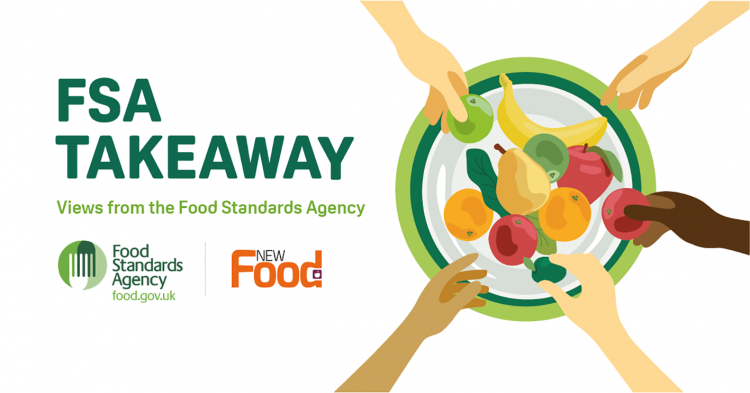What’s eating away at UK consumers?
- Like
- Digg
- Del
- Tumblr
- VKontakte
- Buffer
- Love This
- Odnoklassniki
- Meneame
- Blogger
- Amazon
- Yahoo Mail
- Gmail
- AOL
- Newsvine
- HackerNews
- Evernote
- MySpace
- Mail.ru
- Viadeo
- Line
- Comments
- Yummly
- SMS
- Viber
- Telegram
- Subscribe
- Skype
- Facebook Messenger
- Kakao
- LiveJournal
- Yammer
- Edgar
- Fintel
- Mix
- Instapaper
- Copy Link
Posted: 12 August 2021 | Lucy King | No comments yet
Following the publication of ‘Wave 2’ from its ‘Food and You 2’ survey, the FSA’s Lucy King highlights the key learnings.


We launched Food and You 2 in 2020. It uses a ‘push-to-web’ approach to encourage respondents to take part online and covers England, Wales and Northern Ireland.
In this article, we’re sharing some of the key findings from Wave 2 of research (Wave 1 was published in March 2021). In Wave 2 we continued to monitor consumers’ concerns about food, food safety practices in the home, food security and trust in food and the FSA. We also introduced new questions on eating out and ordering takeaways, the Food Hygiene Rating Scheme (FHRS), and food hypersensitivities.
What the data from Food and You 2 Wave 2 tells us
Trust
Confidence in the overall food supply chain is high. Over three quarters of respondents (77 percent) reported that they had confidence in the food supply chain (defined as all the processes involved in bringing food to their table). However, when asked about specific actors involved, confidence varied. For example, respondents were more confident that farmers (88 percent) and shops and supermarkets (87 percent) would ensure that the food they buy is safe to eat, but less confident in food delivery services, such as Just Eat, Deliveroo and Uber Eats (52 percent).
Covid and food hygiene
We know that the COVID-19 pandemic has had a significant impact on people’s eating habits, with people dining out less and eating and cooking at home more. The proportion of people ordering takeaways (either directly from a restaurant or takeaway, or via an online delivery company) is relatively high however, particularly among younger adults and those in larger households. For example, 78 percent of respondents aged 16-24 years told us they had eaten food from a takeaway in the last four weeks, compared to 26 percent of those aged 75+.
Most respondents (87 percent) had heard of the FHRS and 43 percent of those who order takeaways said that the Food Hygiene Rating was something they considered when deciding where to order a takeaway from.
Allergy information
We also asked respondents who reported experiencing adverse reactions to food, how often allergen information was readily available when they ate out or bought food to take out. While 13 percent reported that this information was always readily available, 61 percent of respondents stated it was available less often and 14 percent that it was never readily available.
When asked about their confidence in allergen information, respondents were more likely to report confidence in the information provided by restaurants (82 percent), cafés, coffee or sandwich shops (79 percent), and pubs or bars (75 percent), compared to the information provided by food-sharing apps (23 percent) or Facebook Marketplace (21 percent).
Food security and other concerns
The Wave 2 data revealed that 84 percent of respondents were classified as ‘food secure’ across England, Wales and Northern (73 percent high, 11 percent marginal), while 16 percent were classified as ‘food insecure’ (eight percent low, seven percent very low).
We also used Food and You 2 to monitor consumers’ concerns about the food they eat. When prompted, respondents told us they were most concerned about the amount of sugar in food (60 percent), food waste (60 percent) and animal welfare (57 percent).
The full findings are available in the Wave 2 report.
Continuing our understanding of consumer views
We have just completed fieldwork for Wave 3, which included new questions on online food platforms. The findings will be available late 2021/ early 2022 – watch this space!
About the author
Lucy King is a Principal Research Officer in the FSA’s Social Science Team. Lucy leads the Food and You 2 research programme, working closely with Research Fellow, Dr Beth Armstrong. Lucy joined the civil service in 2014 and spent four years working for the Ministry of Defence before joining the FSA in 2018.
Related topics
Allergens, COVID-19, Food Safety, Food Security, Health & Nutrition, Hygiene, Supply chain, The consumer







